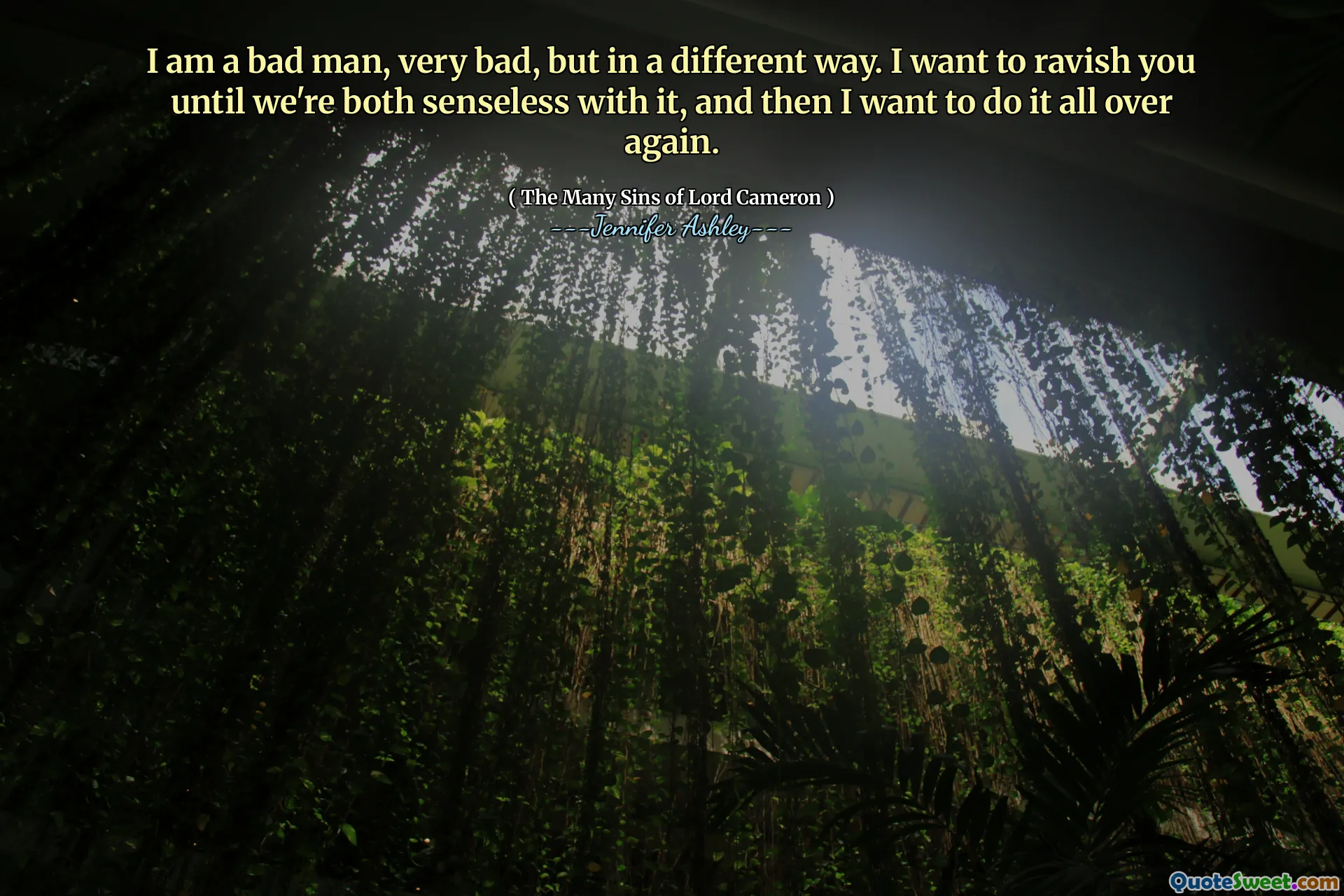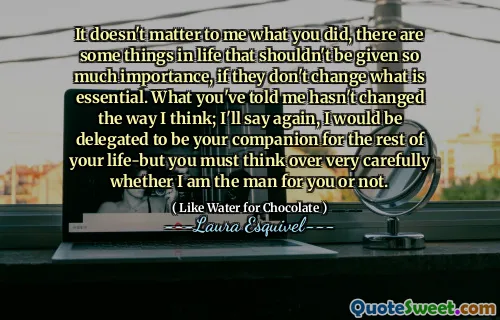
I am a bad man, very bad, but in a different way. I want to ravish you until we're both senseless with it, and then I want to do it all over again.
This quote emanates a raw, unfiltered intensity that explores themes of passion, desire, and the complex nature of morality. The speaker openly admits to being a 'bad man,' suggesting a self-awareness of their morally ambiguous or transgressive tendencies. Yet, there's a nuanced distinction made—it's 'in a different way,' implying that their actions or intentions are unconventional or perhaps misunderstood. The desire to 'ravish' the beloved to the point of losing consciousness and then repeat this act underscores a primal, almost reckless form of love or lust that borders on obsession. It provokes reflection on human sexuality, the power dynamics involved, and the way passion often challenges societal notions of decency and virtue. In literature, such confessions serve to peel back the veneer of civility, revealing the more visceral and untamed aspects of human nature. This quote highlights the tension between shame and desire, showcasing how intense emotional or physical pursuits often come bundled with feelings of guilt, excitement, and vulnerability. From a character development perspective, it illustrates a persona who is unapologetic about their darker side, possibly embracing their flaws as an intrinsic part of their identity. Philosophically, it pushes one to ponder the boundaries of morality, the role of consent, and the transformative power of love and lust. Jennifer Ashley’s '(The Many Sins of Lord Cameron)' could suggest that such characters and their confessions are central to exploring the complexities of love, remorse, and human imperfection within romantic narratives.






